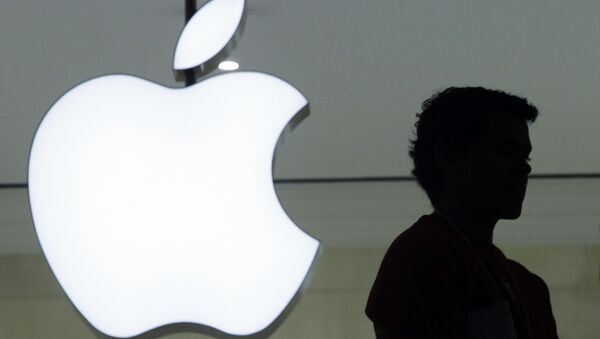Market participants reacted with a touch of scepticism to the remarks, pointing out the higher production and workforce costs in the US would render Apple products even less affordable for the average consumer.
This, in turn, might affect Apple’s earnings and profitability, and hinder their corporate growth prospects, which the company is hardly willing to tolerate. Therefore, some observers pointed out, Apple would not risk opening costly manufacturing facilities in the US, rather sticking to their existing, and quite successful, business model.
"I said, you know, Tim, unless you start building your plants in this country, I won't consider my administration an economic success," Trump said in his interview with the Wall Street Journal on Tuesday. "He called me, and he said they are going forward."
Aside of the Trump-proposed higher customs tariffs, or border adjustment tax, on goods imported from Asia, and mainland China, in particular, Apple might be facing other regulative measures unless they – at least, partially – comply with the White House’s aspirations to restore the US manufacturing.
"I spoke to [Cook], he’s promised me three big plants – big, big, big," Trump said.
This is not the first time Trump has mentioned Apple in his public speech. In January, Trump said that Apple were ‘open’ to opening some manufacturing facilities in the US. On his election campaign trail last year, Trump also said that, once elected, he would "get Apple to build their damn computers and things in this country instead of other countries."
However, the making of most of Apple’s products is outsourced to manufacturers such as Foxconn, with assembly lines in mainland China. These iPhones, iPads, and whatnot are then distributed throughout the world, and currently, they are entering the US market with little or none customs tariffs imposed, meaning the Chinese manufacturers are extracting significant benefits from the US consumer market.
Yet, some Apple displays for iPhone and iPad are made in Kentucky by Coring, whilst their processors are made by Samsung in New York and Texas.
Trump, however, wants a full production cycle moved to the US, because mass production assembly line creates most jobs in manufacturing, whereas the current scale of US-based electronics manufacturing is limited to only the production of most sophisticated components, which few workers are qualified enough to do.
Soon after winning the election in November, Trump said in a New York Times interview that he would "get Apple to build a big plant in the United States, or many big plants."
Trump, however, has not made it clear whether he is expecting Apple itself to launch full-cycle electronics production in the US, or he would be satisfied with Apple’s subsidiaries moving their manufacturing facilities into the country. The former solution would maximise the positive effects to the US manufacturing and economy, as Apple would presumably pay more in taxes in the US, whilst the latter would involve international companies opening manufacturing facilities in the US, whilst being based elsewhere.
Foxconn, the Taipei-based manufacturer that operated multiple manufacturing locations in China, are allegedly in the process building factories in the US, in Michigan and Wisconsin, with some Apple products expected to be made there. However, this is perhaps not the scale of reshoring of the US manufacturing Trump is expecting.
All in all, a US-made iPhones would not necessarily be more expensive than what they are now, as higher labour and regulation costs might be somewhat offset by the lower logistical expenses, especially in the event of full-cycle production opening in the US. Apple, at the same time, would enjoy a lower exposure to international economic and political risks and possible disruptions.
On the other hand, the tepid consumer sentiment in the US, and the still possible increases in iPhone retail price, as well as possibly lower manufacturer premium, could affect Apple’s financial performance. Thus far, Apple’s stock responded positively to Trump’s announcement, with investors either anticipating Apple’s greater operational stability if US plants open, or completely dismissing Trump’s rhetoric.
In the latter case, however, Trump’s looming border-adjustment tax would produce significant volatility and plunge in earnings for Apple in the medium-term perspective.





